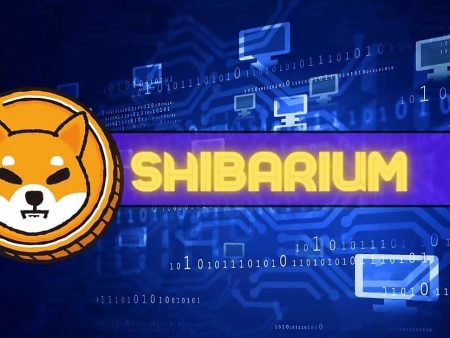Smart Contract is a term that is increasingly mentioned in the field of Blockchain technology. Smart contracts promise to bring many benefits and revolutionize how we interact with each other in society. However, not everyone understands clearly what this concept entails and how it works.
So, what are Smart Contracts? How do they operate? And what are the benefits they offer? Let’s delve into this article of AZCoin to gain a more detailed understanding of Smart Contracts.
What is a Smart Contract?

Smart contracts is a self-executing computer program stored on the blockchain. It automatically verifies and executes the terms of the agreement between the parties without the involvement of a third party intermediary.
Who is the Founder of Smart Contracts?

Nick Szabo – A computer scientist and lawyer, is considered the founder of the concept of Smart Contracts. In 1997, he wrote a paper on this topic, laying the foundation for the development and Decentralized application of Smart Contracts in the future.
Szabo defined Smart Contracts as “a transaction protocol that executes the terms of a contract using cryptographic code”. He also pointed out that Smart Contracts can reduce costs and time for transactions, eliminate the need for intermediaries and ensure security and transparency in transactions.
With his research and contributions, Nick Szabo is regarded as a pioneer in the field of Smart Contracts and a key figure in the development of this technology.
How does a Smart Contract work?

Smart Contracts are pieces of programming code deployed on a blockchain platform to automate and enforce contract terms safely and transparently. They function as digital contracts that operate autonomously once predefined conditions are met, without the need for third-party intervention.
For example, in the cryptocurrency field, a Smart Contract can be utilized in lending transactions. Borrowers and lenders can set up a Smart Contract to define terms such as interest rates, loan amounts, duration and repayment methods. When conditions like interest rates are met, the Smart Contract automatically transfers funds from the lender to the borrower, completely eliminating the need for third-party oversight or verification.
It’s important that every transaction and behavior of the Smart Contract is recorded on the blockchain, with high accuracy and security. This ensures transparency and prevents any intervention or changes after the contract has been implemented.
Characteristics of smart contracts
Below are some typical points about smart contracts:
- Auto-execution: Pre-programmed clauses execute automatically when conditions are met, eliminating third-party intermediaries.
- Transparency: All activities are recorded and stored on the blockchain, allowing all parties to access and check information easily.
- Security: Cryptographic encryption protects smart contracts against tampering, fraud, and unauthorized access.
- Efficiency: Reduce costs and transaction times by eliminating manual procedures and intermediaries.
- Accuracy: Minimize errors and disputes due to automatic implementation of pre-programmed terms.
- Decentralization: Not dependent on any organization or individual, increasing autonomy and resistance to censorship.
- Programmability: Can be programmed to perform many different functions, meeting diverse user needs.
Benefits and risks of Smart Contracts

Benefits
- Automating transactions helps save time and costs for all parties involved.
- The transparency and security of transactions help increase trust in society.
- Eliminating the need for intermediaries helps reduce costs and risks in transactions.
- Contracts deployed on the blockchain can’t be altered or canceled, ensuring transparency and accuracy in transactions.
Risks
- Programming and deploying Smart Contracts require a deep understanding of blockchain technology and specific programming languages.
- Conditions and actions within Smart Contracts must be clearly and precisely defined to avoid unintended consequences.
- There is currently no legal framework supporting the resolution of disputes related to Smart Contracts if issues arise.
Practical applications of Smart Contracts

The real-world applications of Smart Contracts are diverse, including:
- Financial transactions: Smart Contracts can automate financial transactions such as transfers, loans, insurance payments and stock trading without the need for third-party intervention.
- Insurance: Smart Contracts can automatically process compensation claims based on predefined conditions, reducing paperwork and increasing transparency.
- Real estate: Using Smart Contracts to manage rental agreements, real estate transactions and secure automated payments.
- Retail and e-commerce: Applying Smart Contracts in online transactions to enhance authentication and security for both buyers and sellers.
- Certification and documentation: Storing and verifying certificates, important documents such as diplomas, employment contracts and origin certificates.
- Internet of Things: Integrating Smart Contracts with IoT devices to automate transactions and manage smart devices.
- Supply chain management: Increasing transparency and automating processes in the supply chain from production to distribution.
- ICO and STO: Projects conducting ICOs (Initial Coin Offerings) and STOs (Security Token Offerings) often use Smart Contracts to automate token distribution, raise funds and manage contract terms, ensuring transparency and safety for investors.
- DeFi: Widely used in DeFi to provide services such as crypto lending, creating liquidity pools and executing instant trades.
- Supply chain management: Additionally, Smart Contracts can assist in managing and tracking supply chain activities, from manufacturing to shipping and sales, thereby increasing transparency and efficiency for businesses like AZcoin – best crypto exchange 2024.
Comparison of Smart Contracts with Traditional Contracts
Smart Contracts and traditional contracts have certain similarities and differences.
Similarities
- Both types of contracts are agreements between parties with defined rights and responsibilities for each party.
- Both involve the participation of parties to establish and execute the terms of the contract.
Differences
- Smart Contracts are automated and enforced by computer code, whereas traditional contracts are manually executed.
- Smart Contracts operate based on blockchain technology and cannot be altered, whereas traditional contracts can be modified or canceled.
- Smart Contracts provide automated execution through blockchain, ensuring immutability and transparency, unlike traditional contracts that rely on manual processing and are subject to alterations. This distinction is crucial in fields like Crypto Trading Bots, where automation and security are paramount.
Conclusion
Above, AZcoin introduced the basics of Smart Contracts – a concept that is gradually becoming popular and important in the field of blockchain technology. With transparency, automatic calculation and safety, Smart Contracts promise to bring many benefits to the cryptocurrency sector in particular and society.
Smart contracts are an important part of Web3, you can refer to: Web 3.0 Explained: Why is it important?

I’m Jessi Lee, currently living in Singapore. I am currently working as a trader for AZCoin company, with 5 years of experience in the cryptocurrency market, I hope to bring you useful information and knowledge about virtual currency investment.
Email: [email protected]











